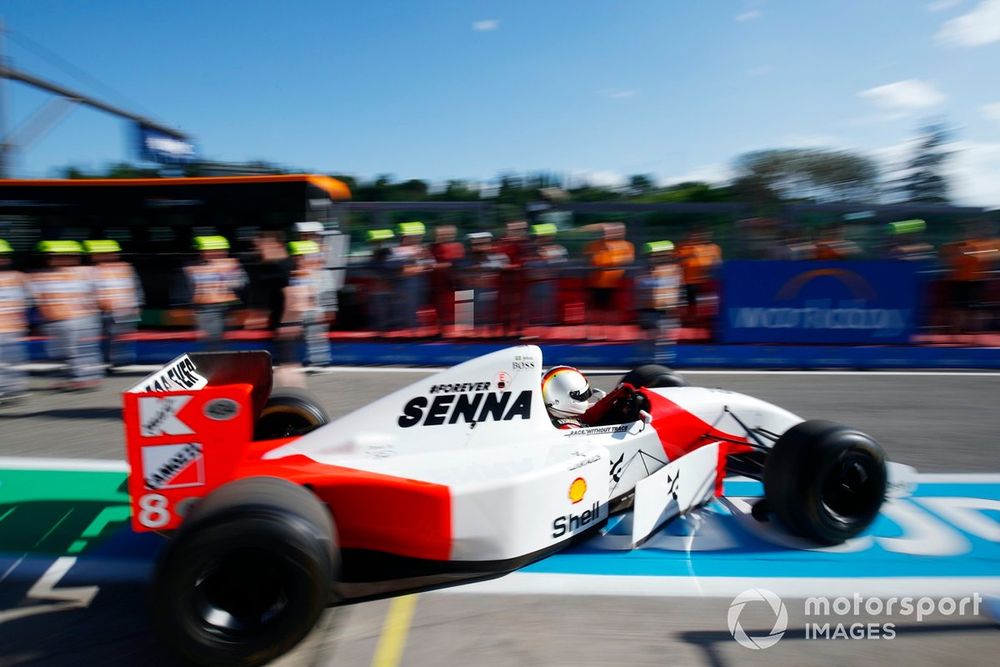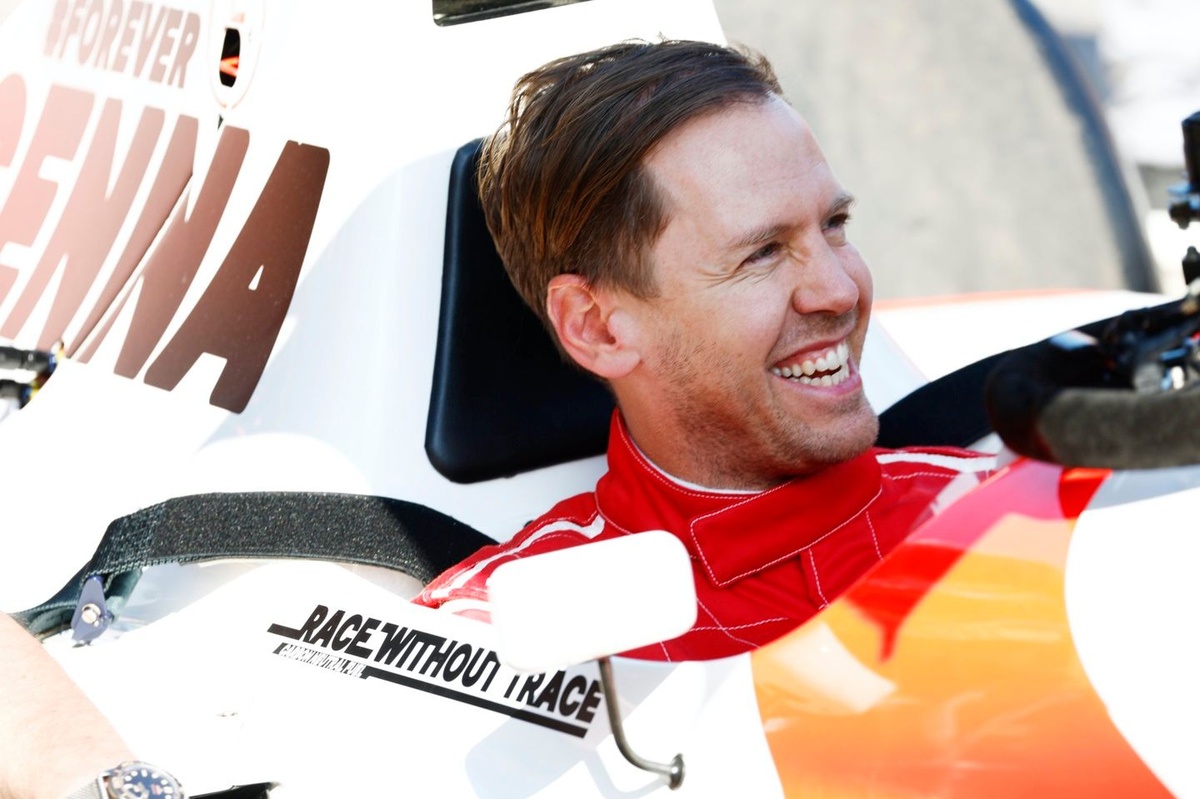Former Formula 1 driver Sebastian Vettel has critiqued the current regulations of the series, arguing that it should give up on its intent to be road relevant and instead consider a return to naturally aspirated V10 engines.
Speaking to Auto Motor und Sport, the four-time champion has questioned the direction of F1 and its technical regulations – specifically the use of expensive and complicated hybrid engines.
“The current engine is too expensive. Apart from the ‘Hybrid’ sticker, there hasn’t been any transfer to series production because it was too complex and too expensive,” he said.
“From a sporting perspective, the competition must be as close as possible without damaging the spirit of Formula 1. And people must still be able to afford the sport,” he continued before questioning what the championship needs to do to continue its success.
“A grand prix is a big event with a large crowd. That allows me to explore many new topics. How do I get spectators to the circuit and back again? What do people consume at the track? Where do things come from? What do they contribute to making it a great event?”
The former Red Bull driver further argued against the importance of road relevance in the series, adding that fans of F1 could benefit from a move back to the use of V10s.

Sebastian Vettel drives Ayrton Senna’s McLaren MP4/8
Photo by: Zak Mauger / Motorsport Images
“I was still able to experience what a V10 feels and sounds like. And that is part of the show and the Formula 1 experience.
“In the past you didn’t just go to the race track to see who would win; you also wanted to breathe in all the fascination around it,” he said.
“I do think there’s a generation growing up for whom the V10 sound is no longer as important as it is for us, but who could still be excited by it. The question is whether the engine formula has to be relevant to road car production. I don’t think so.”
While this seems less environmentally friendly than the 2026 regulation changes, which see 50% of the car’s power coming from electrical energy, the German added that the adoption of larger engines would have to be done in a way that minimises the effect on the environment.
“It will move away from this transfer and more towards entertainment. We should stick to what we know, but it has to be done better in environmental terms.
“The shoe I buy has to be manufactured in a way that doesn’t harm the environment and that ensures fair working conditions. The same applies to cars and motorsport events.
“It would be a shame if the motorsport we know were to cease to exist. It’s perfectly normal for it to change.”
In this article
Be the first to know and subscribe for real-time news email updates on these topics
Subscribe to news alerts

